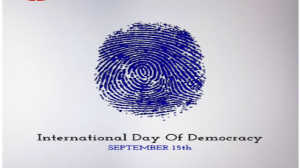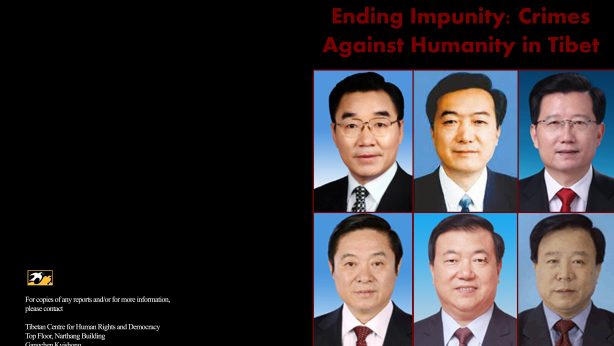TCHRD calls for internalization of democratic culture on Tibetan Democracy Day

Today marks the 54th anniversary of the Tibetan Democracy Day. On this important occasion, the Tibetan Centre for Human Rights and Democracy (TCHRD) would like to extend greetings to the Tibetan people living in and out of Tibet. Fifty-four years ago, on 2 September 1960, under the leadership of His Holiness the 14th Dalai Lama, the first Commission of Tibetan People’s Deputies (CTPD) took their oaths of office in Dharamsala, India. This ushered in, for the first time in our history, a system of political governance based on the principles of liberal democracy. The CTPD is now known as the Tibetan Parliament-in-exile.
In the decades since the first CTPD was sworn in, Tibetan democracy in exile has evolved. The exile Tibetan leadership and public became progressively more active and took many important decisions. In 1963, a constitution for future Tibet was adopted. This constitution established the rules for how the Tibetan government-in-exile would function. It was followed by the adoption of the ‘Charter for Tibetans in exile’ in 1991, which paved the way for more direct representation in the exile Tibetan government. This led to the direct election of Kalon Tripa (head of the exile Tibetan administration) in 2001, a profusion of non-governmental organizations, including TCHRD, and most significantly, the devolution of the Dalai Lama’s political authority to an elected leadership in March 2011.
TCHRD would like to acknowledge that such momentous changes in our exile democratic system would not have been possible without the inspiration and the determination of the Tibetan people, both in Tibet and in exile, who have shown tremendous resilience in the face of Chinese assault on Tibetan culture, civilization and way of life.
However, the process of creating a completely fair and representative democracy requires constant work and attention. Even the world’s oldest and largest democracies still can improve. Through sacrifice and perseverance there have been key democratic changes since 1960, such as the division of power among the legislature, executive and judiciary, and the direct election of Sikyong or the political leader of the Tibetan people. We must build upon these sacrifices to continue to strive for a more democratic society.
On Democracy Day, we must remember not only to look back at how far we have come but also look forward to see what more we must do. We must strive to internalize a culture of democracy that embraces diverse social, political and religious ideas. We must constantly maintain a society that encourages and rewards people with creative and constructive solutions to the varied problems that beset our community. We must build upon the sacrifices of the past to deepen the entrenchment of secular, human values such as openness, compassion, mutual respect and tolerance for diverse opinions and dissent.
Looking at the so-called village election process organized by the Chinese government in Tibet, it is clear that democracy entails more than the practice of holding periodic elections or building institutions. Democracy must become the guiding principle of our daily lives, based on the twin pillars of freedom and social justice. We must strive to ensure that all Tibetans have equal access to political, civil, economic, and social rights. We must strive towards the decentralization of power and redistribution of resources, especially towards those people who live on the margins of the community.
The treatment of Tibetans inside Tibet and the unwillingness of the Chinese government to resolve the issue of Tibet must be a call to action and not a cause for despair. History is witness to the fact that ideals sow the seeds of creative revitalization of societies, and those that have given up on the ideals of humanity eventually suffer from stagnation and death. Our greatest source of strength, both inside and outside of Tibet, is our commitment to our values—our determination to constantly strive and advocate for improvement.
Under such circumstances, a restoration of faith in the ideals of democracy, combined with our ongoing efforts to rebuild our culture and religion in exile, and the inspiration of our brothers and sisters in Tibet who stand firm in their non-violent resistance to the Chinese onslaught despite grave and violent consequences will give us the much-needed strength and hope to restore our long-deserved freedom and dignity.

